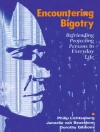The collected papers from the most prestigious symposia in the
field of child development provide scholars, students, and
practitioners with access to the work of key researchers in human
development. This volume focuses on changes in our understanding of
cogisnitive control processes–constructs important to the
field since Wundt and Freud. Our understanding of these constructs
has advanced dramatically in recent years–both empirically
and conceptually. This collection brings generalists and
specialists alike up-to-date on this central process of human
development and the implications for this new knowledge on school
success and other areas.
İçerik tablosu
Preface vii
List of Contributors xi
1 What Is Cognitive Control? 1
Philip David Zelazo and Jacob E. Anderson
PART I: Mechanisms
2 Development of Neural Networks Supporting Goal-Directed
Behavior 23
Elizabeth L. Johnson, Sarah E. Munro, and Silvia A.
Bunge
3 Developing Cognitive Control: The Costs and Benefits of
Active, Abstract Representations 55
Yuko Munakata, Hannah R. Snyder, and Christopher H.
Chatham
4 The Emerging Executive: Using Dynamic Neural Fields to
Understand the Development of Cognitive Control 91
John P. Spencer and Aaron T. Buss
PART II: Implications
5 Stress and the Development of Executive Functions:
Experiential Canalization of Brain and Behavior 145
Clancy Blair
6 Individual Differences in Child Temperament and Their Effect
on Cognitive Control 181
Nathan A. Fox
PART III: Interventions
7 Want to Optimize Executive Functions and Academic Outcomes?
Simple, Just Nourish the Human Spirit 205
Adele Diamond
PART IV: Reflections
8 Development of Cognitive Control: Where Are We and
What’s Next? 233
Maria D. Sera and Nicole Scott
Author Index 247
Subject Index 261
Yazar hakkında
Philip David Zelazo is the Nancy M. and John E. Lindahl Professor in the Institute of Child Development at the University of Minnesota. He studies the development and neural bases of executive function, or the conscious control of thought, action, and emotion. His work has focused on a number of influential ideas, including the notion that the executive function depends, in part, on the development of the ability to use increasingly complex, higher-order rules.
Maria D. Sera is a full professor in the Institute of Child Development at the University of Minnesota.?Her research focuses on the relation between language and cognitive development.












